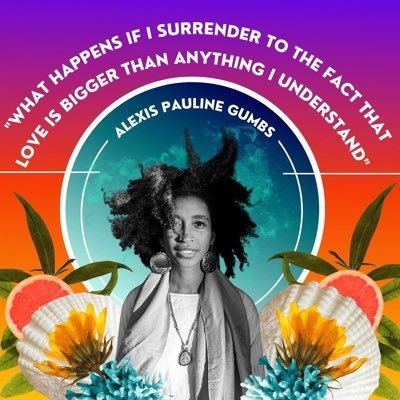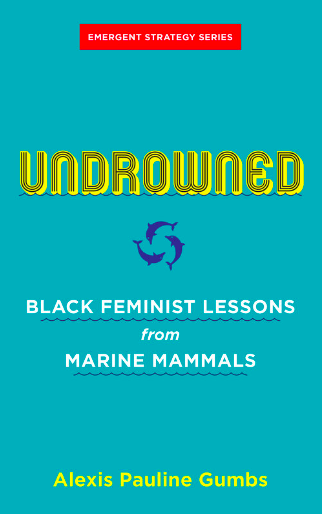An Interview With Alexis Pauline Gumbs by Kameelah Janan Rasheed c/o Believer
Personal Reflection
Reading an excerpt of Alexis Paul Gumbs’ book, Undrowned: Black Feminist Lessons from Marine Animals, during our session on Nature brought tears to my eyes as she made connections between marine animals and Black folks. I felt seen, affirmed and cared for through her words. It encouraged me to look further into who Alexis is as a writer and I came across this interview which helped me further understand her perspective. This article also affirms me in my own seeking/learning as I journey on a path towards liberation and love in community.
Key Takeaways
Quotes from Alexis Paul Gumbs:
“She was like, ‘Alexis, those people who are walking down the street screaming and talking to themselves are not talking to themselves.’ And I had to really hear that. She was saying it’s so important to actually respect the fact that we are connected to so much more than our own consciousness, and it’s really important to honor that and to relate to that in ways that are balanced and healthy. And intentional. So all that is to say I do feel I’m listening all day long; I would characterize everything I do as a form of listening. In terms of my writing rituals, I am very specifically up before the sun rises in a meditative practice of listening. The most intensive specific listening practice is that early morning practice.”
“In my active listening to anyone who’s in a workshop I’m facilitating, or when I’m listening to my elders, I’m not trying to control what they say. I’m not trying to judge whether what they’re saying is worthwhile or if they’re getting to the point. I may have no idea what you’re talking about, but I know I am committed to listening. I’m specific about who I’m sitting with and listening to. I’m really prioritizing queer Black elders. I’m prioritizing Black feminist elders. I’m prioritizing Black kids. That act of priority is also what allows me to completely surrender and say there’s nothing that Black children can do in front of me or say around me that I don’t feel is worth my presence. So in that context, listening can never be a waste of my time. It can never dishonor my attention, because this is what I’m here for. I’m here to be with you. I’m here to learn from you. I understand that to be already decided possibly before I even got here.”
“I would say that in my listening process I experience a lot of clarity, but what I hear and what I write are not always clear to me in the moment. I don’t find myself experiencing very much dissonance even though I’m often experiencing something I can’t categorize. But I don’t feel like what I hear is hurting my ears or giving me a headache. Even when I feel overwhelming sadness and I can’t necessarily index it or note what exactly is causing it, I understand that it is for me. I don’t feel like it reached the wrong address. And that to me is a form of harmony. Even if it’s so complex that I can’t detangle or understand it in a linear sense. And, honestly, I think it’s helpful to view what I’m experiencing as an ancestral reclaiming of my presence, attention, and time. I just want to make more space for the experience that has led to me making less and less time for some of the linear demands that capitalism and the narrative of capitalism had already taught me.”
“What is the point of learning? The point of learning is that we can take care of one another better, right? What else is there to learn?”
“Intelligence is not contextual until it’s intelligible. Why did I learn critical thinking? What has been the relevance in researching and reading things over and over again and thinking as creatively as I can? I realized at a certain point, Oh, this is me trying to learn how to be a daughter to my mother. That’s been my central research project. It’s not the only one, but it’s all relational in that way. How do I daughter these Black women theorists whose work generates my living consciousness? How do I hold space for all my communities of accountability? I’m using your word drive again. That’s the drive. Why be creative? Why think critically? Because it matters how I care for you. That matters to me, and that is the point of it.”


